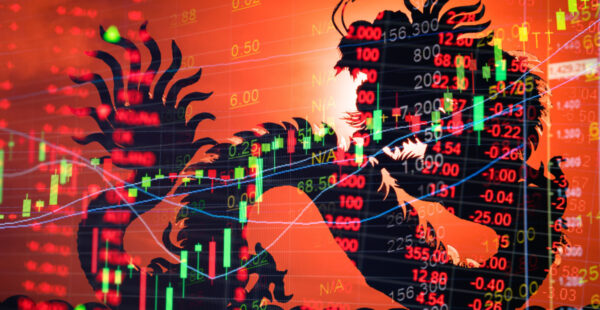Stars align for ESG investors in 2024

A confluence of policy changes, including major green innovation initiatives within the world’s top economies, and “promising structural trends” will deliver accelerated growth in responsible, or ESG, investments over the next year – and potentially the next decade – according to Europe’s largest investment management firms.
“For the first time ever, the alignment between energy security, strategic industrial plans, foreign policies goals and climate objectives is creating significant tailwinds for responsible investing,” the Paris-based investment firm Amundi wrote as part of its first-ever Responsible Investment Views report.
Recognising the thus far lacklustre progress made on the green transition and the increasingly existential threat posed by a changing climate, Elodie Laugel, Amundi’s chief responsible investment officer, has urged those already invested in responsible assets to “stay the course”, particularly as the responsible investment market matures.
“The coming years will be critical,” Laugel said. “A slower transition would certainly bring huge environmental, financial, [and] economic costs that need to be carefully identified. On the opposite, we see great opportunities if the world enters into a steady and orderly transition scenario.”
She added: “Consistency and clarity around the investment value proposition will be key [components] of their success.”
In order to reach the UN’s and the Intergovernmental Panel on Climate Change’s (IPCC’s) goal of carbon neutrality by 2050, Amundi notes that global clean energy spending will need to more than double to $4.5 trillion per year by 2030. Of this figure, around $2 trillion annually will need to be spent in emerging markets alone.
“While the funding taps to make this happen have been slow to turn on, we are finally seeing signs of real acceleration.
It added: “To achieve the significant changes we need for a sustainable inclusive transition to a low-carbon economy, urgent coordinated action is required from all stakeholders, including the financial industry.”
“The coming years are critical if we want to 1) avoid huge financial, environmental and social costs should the transition be delayed or unsuccessful, and 2) make the most of the massive financial, environmental and social opportunities that a steady and orderly transition entails.”
With waters increasingly muddying around responsible investments, Amundi has urged the finance industry “to bring greater clarity to the sustainable finance value proposition” – one that balances the need to keep pace with environmental and social challenges while continuing to put clients’ objectives first.
Capitalising on the clean energy transition
According to Amundi, over the coming decade, the US’s clean energy transition will be spurred by its Inflation Reduction Act, progressively unlocking $400 billion in incentives and tax credits; meanwhile, the EU, the world’s third-biggest economy, is set to deliver on its Green Deal Industrial Plan, mobilising €300 billion to support clean energy investments. “Trillions of additional investments” are also expected in both markets.
China, the world’s second-largest economy after the US, has put green innovation as a keystone initiative of its industrial policy, with the country’s 14th Five-Year Plan featuring a notable section: ‘Actively respond to climate change’.
Among five green tech areas to watch for this year, according to Amundi, include sodium batteries, AI for smart emissions management, green steel, carbon capture and storage, and alternative marine fuels, according to the firm.
This steady ramping up of ‘green tech’ initiatives and the clean energy transition is one of six responsible investment trends recognised by Amundi, with ESG gaining acceptance as a mainstream and credible investment model.
A failure to meet interim net zero targets, as part of the Paris Agreement, will, according to Amundi, put increased pressure on governments to double down on climate initiatives in a bid to catch up. Annual global clean energy spending will need to more than double – from $1.8 trillion in 2023 to $4.5 trillion by 2030 – to make up the shortfall, with governments worldwide being urged to “issue and follow through on more ambitious climate-related policies”.
Responsible asset investors were advised to gradually allocate capital towards assets tied to carbon reduction pathways that are compatible with ambitious climate goals, whilst engaging stakeholders in a way consistent with these goals.
“Climate strategy has become an essential component of long-term investors’ risk management toolbox. Responsible investors should favour an integrated net zero framework that embraces both alignment [that is, identifying companies that have committed to a net zero trajectory] and contribution dimensions [which is to favour investments that encourage the
deployment of solutions that move the global economy towards net zero by 2050].”
However, Amundi warned investors of “tail risks stemming from both physical risks and transition risks”, noting that “the more ambitious and delayed the transition is, the riskier it may be for the financial market”.
After a challenging 2022, with ESG investments hit by the energy crisis, assets held in responsible funds have nevertheless increased fourfold since 2020. Today, responsible investments account for around one-fifth (17%) of total assets worldwide and more than half of the European ones.
“Despite challenging market conditions, responsible investment flows keep increasing [in] the long run,” said Vincent Mortier, Amundi’s chief investment officer.
“Favourable trends should continue to support its future development as 67% of global asset owners are convinced of the materiality of ESG factors.
“In addition, we expect thematic and impact strategies to dominate the market in 2024 and onwards.”
Sustainable investment funds have recorded significant positive net inflows over 2023, with thematic funds, impact funds and funds with positive ESG screening collecting close to €33 billion (AU$54 billion) between January and November 2023. This comes despite responsible funds, as a whole, experiencing similar negative flows as regular ones, Amundi noted.
Backlash against ESG overblown
A backlash against ESG investments – driven by a contradictory mix of arguments, including that it is either too timid in its approach or that it has gone too far and is “breaching fiduciary duties” – is, for Amundi, “a sign that the industry is maturing”.
Citing Morningstar figures, the investment firm noted that, despite the hype of this debate, nearly two-thirds of investors are convinced of the materiality of ESG factors.
“While political debate and backlash may continue in the coming election year, ESG factors materiality is here to stay, and investors – responsible or otherwise – should hold the course.”











CPA doing the heavy lifting for the FPA?
On paper not too bad. Bill Shorten was far from the worst financial services minister. And experience in the Federal…
This guy loves Industry Super Funds. A former aide & lover of Bill Shorten. And his book is basically a…
As an employee who has lost super due to 2 small businesses, and as an adviser who has seen many…
Former adviser to Bill Shorten, when he was the Minister for Financial Services, He'll put us to the sword!